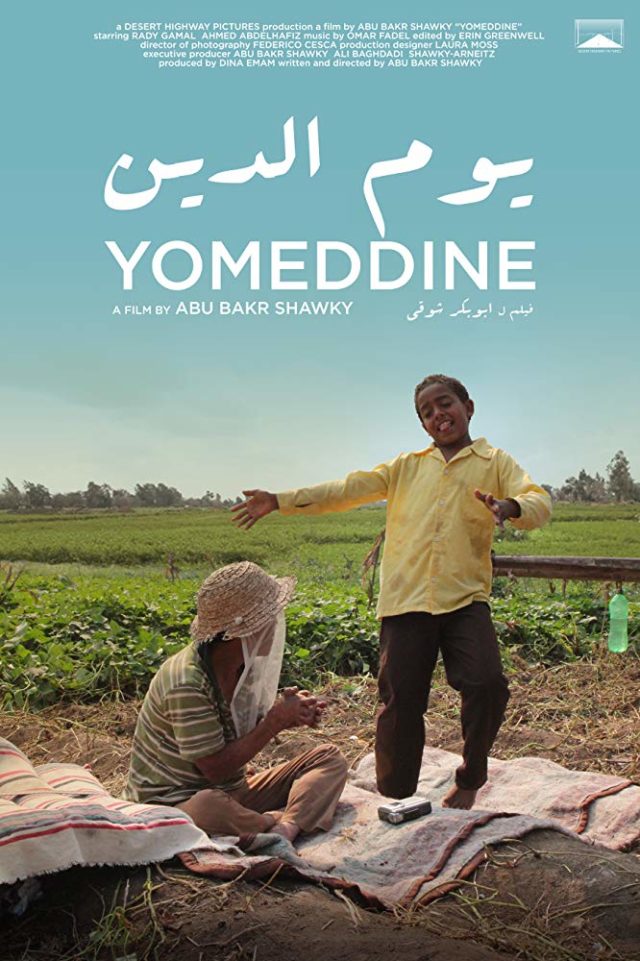
Yomeddine (Abu Bakr Shawky, Egypt 2018), showing at the London Film Festival 18, 20, and 21 October, 2018.
Review by Dr Khalid Ali, Film and Media Correspondent.
In spite of its worldwide impact, leprosy remains on the World Health Organization (WHO) list of Neglected Tropical Diseases. In 2016, there were 216,108 new cases registered from 145 countries. The last Sunday of January every year marks the ‘World Leprosy Day’ in memory of Mahatma Ghandi who was a champion of supporting humane treatment of people with Leprosy, their rehabilitation and integration into the community.
In Egypt, leprosy is still a public health problem in spite of its near elimination in 1994. First time director Abu Bakr Shawky tackles the plight of people affected by leprosy in his home country Egypt. He uses the story of Beshay (Rady Gamal) a man in his mid-forties who lives in a lepers colony on the outskirts of Cairo. Beshay earns little money by recycling garbage, assisted occasionally by a young orphan Obama (Ahmed Abdelhafiz). After his wife’s death, Beshay goes on a road journey heading towards Qena, the province where his family live. All he can remember is the vague shape of his father who left him at the gate of the leper’s colony as a child, and never returned. Obama joins Beshay and his old donkey on an Odyssey meeting people of all sorts; kind people who genuinely help, and others who are out to exploit them.
The film challenges several social and cultural myths in the Arab world that discriminate against people with leprosy. Unfounded fears of contracting the disease by contact are attributed to a weak religious saying advising people to ‘run away from a person with leprosy like one runs from a lion’. It is known that infectivity of patients is very low once they have started treatment, but such misconceptions about high transmission rates are still common in Arab communities. Poverty and dire living conditions are major predisposing factors to disease propagation. Multi-drug treatment is one aspect of management approaches; adequate nutrition and psychological rehabilitation are key elements in any recovery program.
Several well-known films explored the attitude of society to people with facial disfigurement; The Elephant Man and Mask being notable examples. These films relied on established actors to embody the central characters. Upholding an authentic approach to story-telling, the director chose a recovering patient, Rady Gamal, as his protagonist. Gamal relishes the chance of representing thousands of neglected patients; on screen he is a believable human being sharing with the audience a life of chronic illness and suffering. He is neither presented as a saint, nor as a victim. His humanity and resilience shines through his friendship with Obama. Beshay’s encounters with other society pariahs highlights the impact of peer-support in maintaining the well-being of patients with chronic illnesses.
In contrast to the seclusion and segregation of people with leprosy seen in Walter Salles The Motorcycle Diaries, Shawky presents the lepers colony in Abu Zaabal in Qalyoubiya, 40 Km north of Cairo, as a place of solidarity between residents in spite of its harsh living conditions. Published interviews with residents in Abu Zaabal have portrayed an alternative life where leprosy is not a life-long sentence of hopelessness and despair (Wiens & Zaabal; Shenker). By the end of the film, one wonders whether Beshay is better off in the big cruel world or back in the safety of the colony. Whichever decision he takes, his voice and thousands of people in similar situation cannot be silenced anymore.